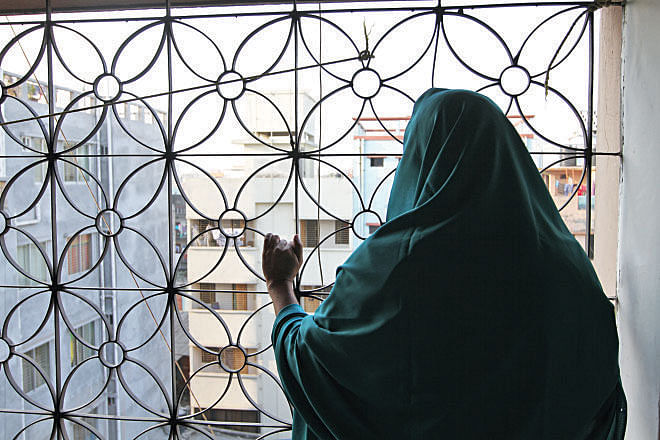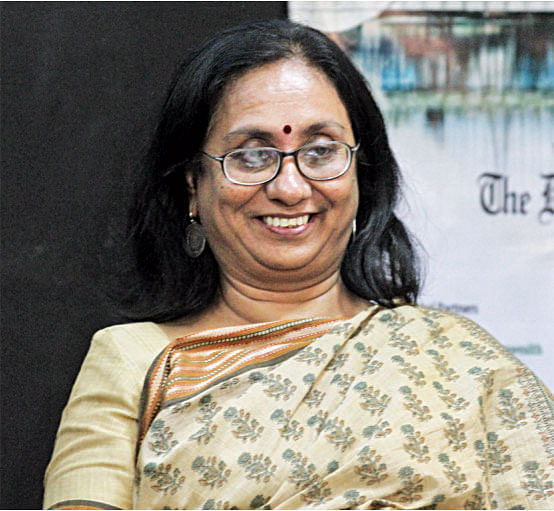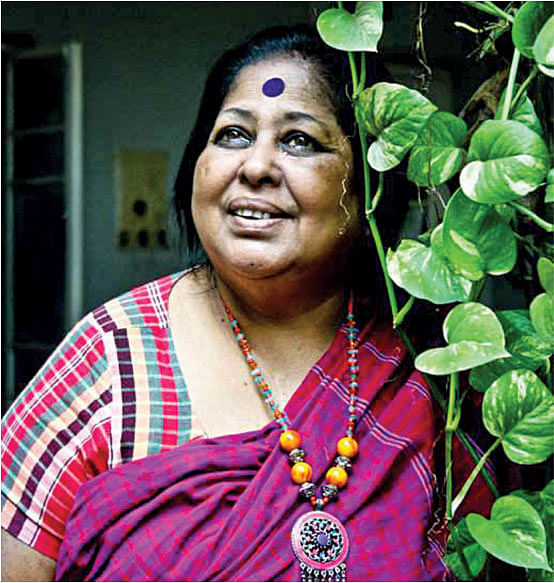Shedding the Cloak of Invisibility

War is never beautiful. We may fight for noble goals, but even the most glorious victory comes at a hideous price. And the blameless often pay this price. We may call them Birangona - the brave women of Bangladesh's battle for liberation in 1971 - but, as a society, we have been, historically, anything but brave in our treatment of these women.
Their bodies and spirits brutalized by the indescribable violence of rape, these women were made unwelcome in their homes and their communities. Instead of honour and solace, they encountered rejection and stigma. Many of them left the nation their blood had consecrated. Others, despairing and hopeless, took their own lives. The gruesome irony of a spirit that survives untold atrocities at the hands of oppressors and is ultimately quelled by those it calls its own ought to be obvious to us all. Yet, the voices of these women, ringing with courage and pain, are lost to us, and we haven't done enough to go searching for them. How do we rectify this tragic elision? And what can we do to restore the Birangona to their rightful place in the narrative of Bangladesh's history?
After 42 years of the war that changed their lives forever, the High Court last week asked the government to explain why it should not be directed to upgrade the social status of our female warriors. After 42 years, steps, however small, are being taken to provide them with state honour and facilities like those given to male freedom fighters. After 42 years of being ignored by the government and the society at large, the silence surrounding this issue is finally being addressed by state authorities.

“Every person who fought in the war, whether man or woman, fought with the intention of freeing their country from an oppressive regime. We didn't fight for recognition or applause. However, while the men who fought in the war were respected as freedom fighters, female survivors were blamed for the crimes committed against them. This law, if it were to be passed, would hopefully be able to alleviate some of this suffering, as the government and the public would acknowledge that women made significant contribution to the war,” says renowned sculptor, Ferdousi Priyabhashini, who survived sexual abuse at the hands of the Pakistani army.
Priyabhashini goes on to say that the word 'birangona' has a tainted meaning in the public mind because they were never provided with a correct, precise history of women's role in the war. “I might proudly call myself a birangona, but there are many others who are still scared to reveal their identity in fear that it may harm their family members.”
Professor Firdous Azim, member of the women's activist group Naripokkho, and chairman of the English department of BRAC University, says that if such a law were to be established, birangonas would be officially recognised as warriors who contributed to war efforts.
“The society never lets a birangona forget that she is a 'tainted', violated woman and so, most women conceal their identity, as they try to forget it themselves. But forgetting is not an option; it's never easy to forget the torture, the abuse that they suffered in the hands of the Pakistani army. If they were given the honour, the recognition of being a freedom fighter, it would help them to reclaim that status in society as well,” says Professor Azim.

Naripokkho has spoken to a number of birangonas on this issue and most of them seem eager for the law to be passed, she says. “They want to be known as freedom fighters, as this will help to remind people of their contribution, their sacrifices for the country.”
One is forced to remember the unofficial public hearing of 1996 where four female war survivors were encouraged by a women's activist group to give testimony about their experiences. The women, all belonging to poor families, were not accepted by their families, they received no compensation and were rejected by their own community.
“This case is very different from the mock hearing of 1996. For one, this will be an official recognition, which means that female war survivors will be given the remuneration and facilities provided to male freedom fighters. They will be given an official status. Moreover, the situation of 1996 was handled in an irresponsible manner but in this case, the government and the state can be held accountable. Survivors are not required to act as witnesses or to testify, so that's a good thing. If the state is made culpable, it will have to provide birangonas with the protection that they require,” says Professor Azim.
In a democratic society, every voice is given the chance to speak and every voice is heard but people prefer not to hear the voices of these survivors, treating them as spurned remnants of a dreadful history, says Ferdousi Priyabhashini. “There has been a lot said regarding this issue. But you can't do anything in a society that has such low tolerance. If we need to see a change in general people's attitude, we first need to change the way our system works,” she adds.
The brave women who sacrificed a lot for the sake of freedom don't deserve to be just bunched into numbers, and regarded as forgotten statistics of the war. To this day, these war heroes are treated with derision, their contribution to the war forgotten, their voices silenced. It is time to rectify the mistake of the lost generations. We have the means, and even the state on our side; now all that we need is the grace and courage to give our heroes the respect, the recognition that they are worthy of.

 For all latest news, follow The Daily Star's Google News channel.
For all latest news, follow The Daily Star's Google News channel. 




Comments